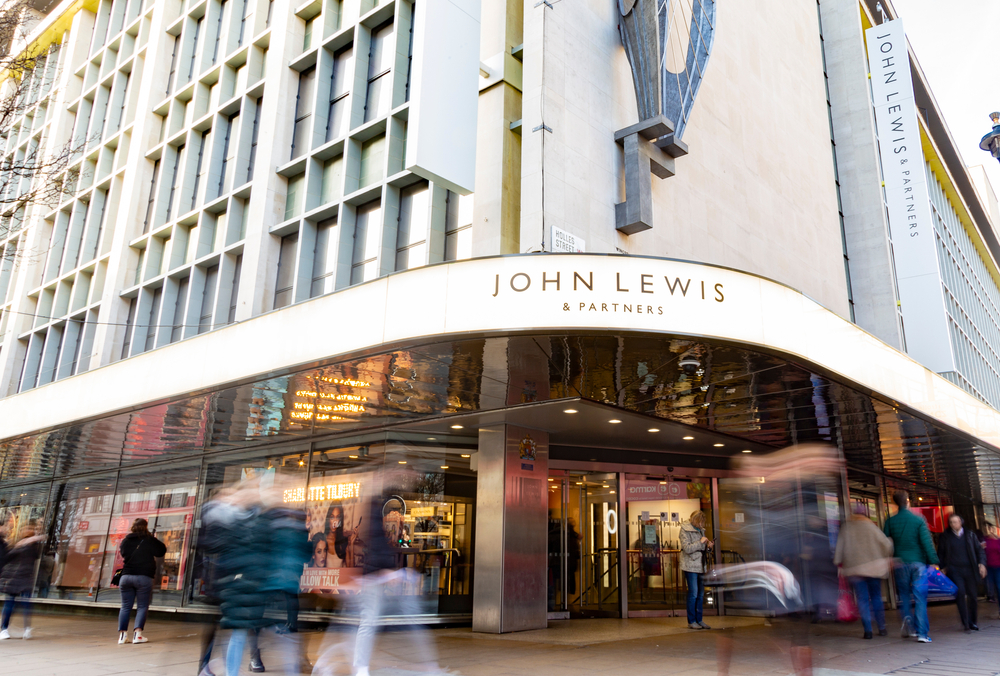2016 proved to be one of the most unpredictable years in recent history. Few would have guessed at the advent of the year what the landscape of the retail sector would look like in 12 months.
However, unpredictability is not good for business. It is important to be able to plan, predict and anticipate coming trends and pressures so retailers can adapt and avoid becoming one of the many casualties we also saw in 2016.
What does 2017 have in store? Will it prove to be just as unpredictable as last year, or can the industry hedge its bets on a few sure things?
The Retail Gazette spoke to some of the most knowledgeable retail experts to find out their predictions for the coming year.
Customer Experience

A key prediction for the year was the ramping up of customer experience, as bricks-and-mortar retailers need to win back customers from the online exodus.
JML chief executive Ken Daly commented: “The surge in online shopping has shown bricks-and-mortar shops that they need to offer something different if they are going to compete.
“One way to do this is for retail outlets to make shopping more of an experience, so expect more in-store events, special parties, and new facilities – like wifi – that make physical stores more attractive.”
Capgemeni retail management consultant Bhavesh Unadkat believes augmented reality (AR) and virtual reality (VR) will be at the forefront of 2017‘s customer experience boost.
“Augmented and virtual reality are two technologies that have been well embraced already by retailers and these will continue to become mainstream in the customers shopping experience,” he said.
“Mothercare is a great example. It introduced an innovative twist to its catalogue this year by allowing those customers with its app to scan the page and watch models showcase the products on their screens.
“As the technology evolves and costs lower – look at Google Cardboard as a headset, for example – we can expect this to be more of a common site, with virtual showrooms and virtual fitting rooms becoming the norm.”
Technology

More and more our lives are dominated by the progression of technology, and the retail industry is no exception.
Alibaba Group‘s UK director David Lloyd commented: “The retail landscape has changed significantly in recent years due to rapid technological advancements and access to bigger, smarter data.
“This evolution will have a notable impact on consumers in 2017, as retailers of all sizes become more accustomed to the technology and data available to them, and as a result, more intelligent in the ways they use it.
“This year retailers will be able to use technology to engage with consumers in new and exciting ways, using methods such as live-streaming, real-time interactivity and virtual and augmented reality.”
Unadkat added: “The biometric recognition revolution is in full swing, and the opportunities that it offers retailers to learn more about their customers, and in turn enrich their shopping experience, is an exciting prospect.
“Whereas AR and VR employs technology to enhance interaction, biometric recognition allows retailers to instantly collect much more detail on their customers than a simple online registration form, such as their approximate age, height, gender and preferences.
“That detail is then used to instantly offer bespoke shopping choices and experiences, whether they are in-store browsing or sat at home on a tablet device.
“On the other end of the spectrum, we‘re seeing technology trialled that can monitor customers‘ reactions to a product they‘re trying-on, and can adjust the clothes offered online accordingly.”
Brexit and inflation
This is of course the biggest hurdle that 2016 threw at the retail industry, but its real ramifications are still a long way from coming into full effect.
London St Pancras International’s head of retail operations Wendy Spinks stated: “With additional pressures on cost brought about through business rates revaluation, apprenticeship levy and weaker pound, there are likely to be more retail casualties in 2017.
“Retailers must adapt to consumer behaviour and be brave against the recent trend of deep discounting in the golden quarter.
“Can the UK put the Black Friday genie back in the bottle in order to survive? This may of course be wishful thinking, but bold action is needed.”
Alibaba‘s David Lloyd has a more optimistic view of the new state of play.
“Truly borderless trade has never been more important than in 2017, with the uncertainty facing businesses in the UK and across Europe around the impact of Brexit placing an increasing importance on an organisation‘s ability to appeal to more than just their conventional, local and neighbouring markets,” he said.
“Entering new overseas markets may seem a daunting prospect for retailers due to the planning, research and general investment that is required.
“Yet there has never been a better time for them to reap the benefits of the fast growing and thriving markets that can be found around the world, fuelled by consumers with a real desire for products from overseas.
“With all these macro issues as the new retail reality, this year will see more retailers responding to the current economic environment and the growing demand from overseas markets by formulating and strengthening internationally focused business strategies.”
Click here to sign up to Retail Gazette’s free daily email newsletter



















